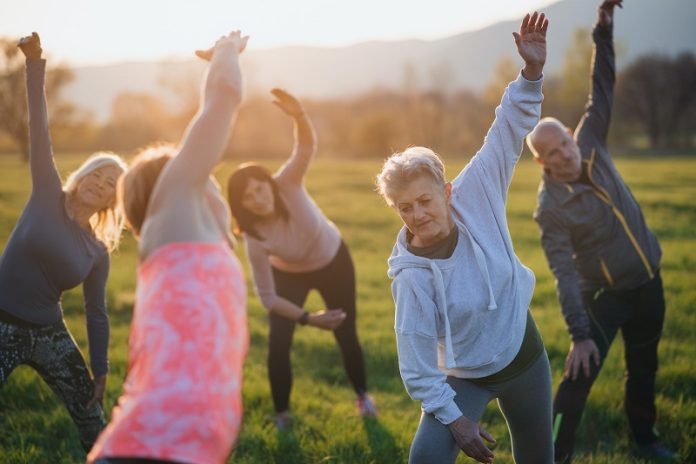
Sleep and physical activity are two important factors that contribute to a long and healthy life.
However, according to recent research at The Affiliated Brain Hospital of Guangzhou Medical University, getting too little or too much sleep may shorten lifespan.
Fortunately, scientists have also discovered that physical activity can help counteract these negative effects.
The study involved over 90,000 adults and found that increased physical activity levels can weaken the mortality risks associated with short or long sleep duration.
The study showed that increased physical activity levels weakened the mortality risks associated with short or long sleep duration.
The main limitation of previous studies was the use of self-reported physical activity and sleep, which may be inaccurate.
In contrast, this study used an accelerometer device to provide objective and more reliable estimates of activity and sleep duration.
This was the first study to examine the joint effects of physical activity and sleep duration on mortality risk using accelerometry.
The study included 92,221 adults aged 40 to 73 years in the UK Biobank cohort who wore an accelerometer wristband for one week between 2013 and 2015.
Sleep duration per night was classified as short (less than six hours), normal (six to eight hours), or long (more than eight hours). Total volume of physical activity was divided into tertiles (low, intermediate, high).
Moderate to vigorous physical activity was classified as meeting World Health Organization (WHO) guidelines or not.
During a follow-up of seven years, 3,080 participants died—1,074 from cardiovascular disease and 1,871 from cancer.
The researchers examined how physical activity influenced sleep’s impact on mortality—first looking at the volume of activity and second at moderate to vigorous physical activity.
The analyses were adjusted for factors that could influence the relationship, including age, sex, ethnicity, deprivation, education level, season of sleep measurement, body mass index, diet, smoking, alcohol intake, and shift work.
The results showed that in those with low amounts of physical activity, short and long sleep were associated with 16% and 37% raised risks of all-cause death, respectively.
In participants with intermediate amounts of exercise, only short sleep was detrimental, with a 41% raised likelihood of all-cause death.
However, in those with a high amount of exercise, sleep duration was not linked with the risk of death.
For heart death, short sleepers with a low volume of exercise had a 69% elevated risk, which disappeared when exercise increased to moderate or high volumes.
For cancer death, long sleepers with low amounts of exercise had a 21% raised risk which disappeared with moderate or high volumes of exercise.
Similar results were found for moderate to vigorous physical activity. In participants not meeting the WHO recommendations, short and long sleep were associated with 31% and 20% raised risks of all-cause death, respectively.
These risks disappeared in those meeting the WHO advice.
For cardiovascular death, short sleepers who failed to meet the advice on intensity of exercise had a 52% elevated risk, which disappeared in those achieving the recommendations.
For cancer death, long sleepers not meeting the advice had a 21% raised risk which disappeared in those following the WHO guidance.
These findings suggest that health promotion efforts targeting both physical activity and sleep duration may be more effective in preventing or delaying premature death in middle-aged and older adults than focusing on one behavior alone.
In an ideal scenario, people would always get healthy amounts of both sleep and physical activity.
However, this study indicates that getting sufficient exercise may partially offset the detrimental impact of missing a good night’s sleep.”
In conclusion, the research highlights the importance of both physical activity and healthy sleep time.
If you care about sleep, please read studies about painkillers that could harm your sleep, and heavy blankets could harm sleep.
For more information about health, please see recent studies that Vitamin D deficiency can increase heart disease risk, and results showing that yogurt may help lower the death risks in heart disease.
The study was conducted by Dr. Jihui Zhang et al and published in the European Journal of Preventive Cardiology.
Copyright © 2023 Knowridge Science Report. All rights reserved.



